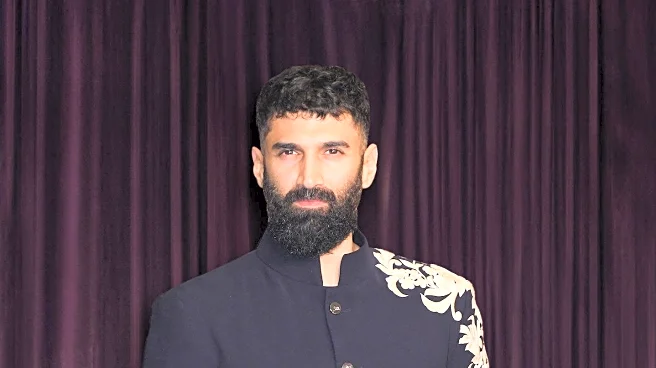What's Happening?
President Trump has dismissed Susan Monarez, the head of the U.S. Centers for Disease Control and Prevention, due to her opposition to directives from vaccine skeptics. Concurrently, Health and Human Services Secretary Robert F. Kennedy Jr. has canceled $500 million in mRNA vaccine research funding, raising concerns about the availability of COVID-19 vaccines. These actions come as the nation faces another surge of COVID-19 cases, with new strains emerging. The new policies have increased vaccine prices and require doctor permissions, potentially limiting access based on age and state residency. Critics argue that these measures undermine efforts to combat the virus effectively.
Why It's Important?
The restrictive vaccine policies could have significant implications for public health in the U.S., particularly as new COVID-19 strains continue to emerge. By limiting access to vaccines and reducing research funding, these actions may hinder efforts to control the pandemic and protect vulnerable populations. The increased costs and access barriers could disproportionately affect low-income individuals and those in states with stricter regulations. The demand for pharmaceutical companies to prove vaccine efficacy may also impact the industry's ability to innovate and respond to future health crises.
What's Next?
The new policies may prompt reactions from various stakeholders, including healthcare professionals, pharmaceutical companies, and state governments. There could be legal challenges or public protests against the restrictions, especially if COVID-19 cases continue to rise. The pharmaceutical industry may need to provide additional evidence of vaccine effectiveness to comply with the new demands. Additionally, states may seek ways to circumvent federal restrictions to ensure their populations have access to necessary vaccines.
Beyond the Headlines
The decision to cut mRNA research funding and restrict vaccine access raises ethical concerns about the government's role in public health. It may also reflect broader political dynamics, with vaccine skepticism influencing policy decisions. The long-term impact on scientific research and innovation in the U.S. could be significant, potentially affecting the country's preparedness for future pandemics. The situation highlights the tension between political agendas and scientific evidence in shaping health policies.









